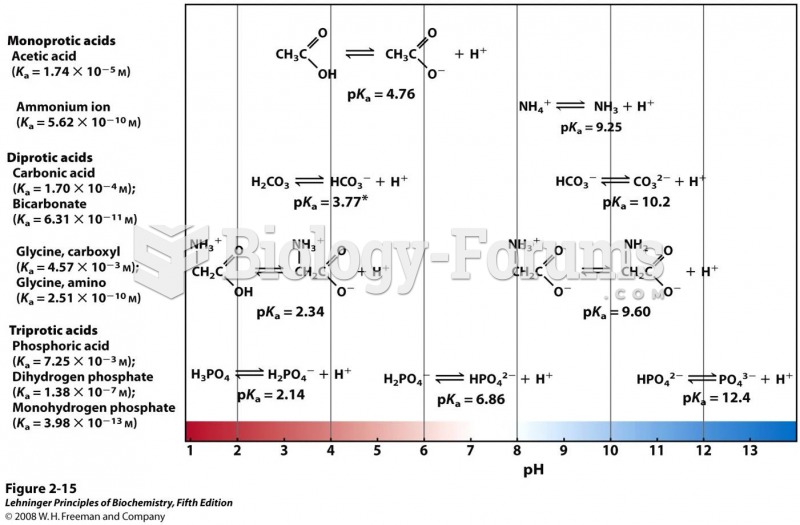|
|
|
The familiar sounds of your heart are made by the heart's valves as they open and close.
Aspirin is the most widely used drug in the world. It has even been recognized as such by the Guinness Book of World Records.
Cutaneous mucormycosis is a rare fungal infection that has been fatal in at least 29% of cases, and in as many as 83% of cases, depending on the patient's health prior to infection. It has occurred often after natural disasters such as tornados, and early treatment is essential.
The horizontal fraction bar was introduced by the Arabs.
To prove that stomach ulcers were caused by bacteria and not by stress, a researcher consumed an entire laboratory beaker full of bacterial culture. After this, he did indeed develop stomach ulcers, and won the Nobel Prize for his discovery.







